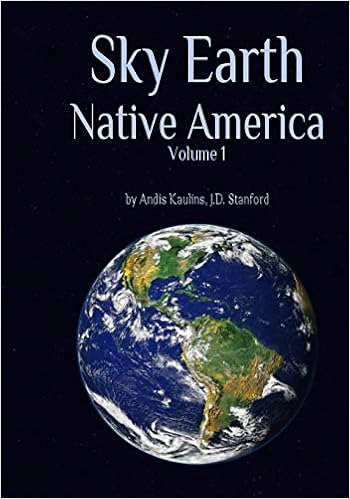The Supreme Court of the United States (SCOTUS) has upheld The Patient Protection and Affordable Care Act ("Obamacare") in a 6-3 vote of the nine Justices. Read the majority opinion and dissent at SCOTUS.
We anticipated both the result and the reasoning of the holding in this case in our previous LawPundit posting of June 21, 2015 in Does Upholding Dewsnup in Caulkett Mean Obamacare Will Be Saved by the U.S. Supreme Court?
The majority opinion was written by Supreme Court Chief Justice John Roberts, joined by Justices Ruth Bader Ginsburg, Stephen Breyer, Sonia Sotomayor and Elena Kagan, and to his great credit now, after dropping the ball on the first SCOTUS Obamacare case, by Justice Anthony Kennedy, who thereby returns to our good graces. When the going gets tough, the tough get going ... and do the right thing. Well done, Justice Kennedy!
Kennedy's shift to the majority from his minority stance in the first Obamacare case is in our opinion a strong signal that Obamacare-opponents are playing a losing game in their attacks on Obamacare.
The "terrible trio" of Justices Antonin Scalia, Clarence Thomas and Samuel A. Alito Jr. dissented, suggesting that they have learned little since the first Supreme Court Obamacare decision, in which they were also in the minority. It would be good if these three Justices would at some time in their careers rise above their personal political prejudices and private intellectual theories about law and the Constitution and be the wise and impartial Justices they should be, but are not, in deciding matters of great importance to the nation.
The U.S. Supreme Court should never overturn major laws as passed by Congress for linguistic hair-splitting reasons, and we say this as co-author of a dictionary, who knows how difficult pinpointing the meanings of words can be in reality, and how little proper attention is paid to linguistic detail in lawmaking.
If the nation ultimately wants it, nothing prohibits Congress from repealing Obamacare, which is unlikely, however, since it has been a success. What Scalia writes in his dissent -- even resorting to calling Obamacare "SCOTUS-care" -- is ridiculous, and unfit for a Supreme Court Justice. Not worthy of that position.
Indeed, as Roberts observes in the majority opinion concerning "the words":
"The Affordable Care Act contains more than a few examples of inartful drafting.
...
Several features of the Act's passage contributed to that unfortunate reality. Congress wrote key parts of the Act behind closed doors, rather than through "the traditional legislative process." Cannan, A Legislative History of the Affordable Care Act: How Legislative Procedure Shapes Legislative History, 105 L. Lib. J. 131, 163 (2013). And Congress passed much of the Act using a complicated budgetary procedure known as "reconciliation," which limited opportunities for debate and amendment, and bypassed the Senate's normal 60-vote filibuster requirement. Id., at 159-167. As a result, the Act does not reflect the type of care and deliberation that one might expect of such significant legislation."
Adam Liptak at the New York Times in Supreme Court Allows Nationwide Health Care Subsidies pinpoints the most important issue in the Roberts opinion:
"Chief Justice Roberts wrote that the words must be understood as part of a larger statutory plan. “In this instance,” he wrote, “the context and structure of the act compel us to depart from what would otherwise be the most natural reading of the pertinent statutory phrase.”That was, as we predicted, the essential and critical core of the case.
“Congress passed the Affordable Care Act to improve health insurance markets, not to destroy them,” he added. “If at all possible, we must interpret the act in a way that is consistent with the former, and avoids the latter.”
We quote Roberts directly from the opinion:
"We have held that Congress "does not alter the fundamental details of a regulatory scheme in vague terms or ancillary provisions." Whitman v. American Trucking Assns., Inc., 531 U. S. 457, 468 (2001). But in petitioners' view, Congress made the viability of the entire Affordable Care Act turn on the ultimate ancillary provision: a sub-sub-sub section of the Tax Code. We doubt that is what Congress meant to do. Had Congress meant to limit tax credits to State Exchanges, it likely would have done so in the definition of "applicable taxpayer" or in some other prominent manner. It would not have used such a winding path of connect-the-dots provisions about the amount of the credit.5
Petitioners' arguments about the plain meaning of Section 36B are strong. But while the meaning of the phrase "an Exchange established by the State under [42 U. S. C. §18031]" may seem plain "when viewed in isolation," such a reading turns out to be "untenable in light of [the statute] as a whole." Department of Revenue of Ore. v. ACF Industries, Inc., 510 U. S. 332, 343 (1994). In this instance, the context and structure of the Act compel us to depart from what would otherwise be the most natural reading of the pertinent statutory phrase.
[LawPundit note: The text of Footnote 5 is omitted in this excerpt.]
Reliance on context and structure in statutory interpretation is a "subtle business, calling for great wariness lest what professes to be mere rendering becomes creation and attempted interpretation of legislation becomes legislation itself." Palmer v. Massachusetts, 308 U. S. 79, 83 (1939). For the reasons we have given, however, such reliance is appropriate in this case, and leads us to conclude that Section 36B allows tax credits for insurance purchased on any Exchange created under the Act. Those credits are necessary for the Federal Exchanges to function like their State Exchange counterparts, and to avoid the type of calamitous result that Congress plainly meant to avoid.
* * *
In a democracy, the power to make the law rests with those chosen by the people. Our role is more confined—"to say what the law is." Marbury v. Madison, 1 Cranch 137, 177 (1803). That is easier in some cases than in others. But in every case we must respect the role of the Legislature, and take care not to undo what it has done. A fair reading of legislation demands a fair understanding of the legislative plan.
Congress passed the Affordable Care Act to improve health insurance markets, not to destroy them. If at all possible, we must interpret the Act in a way that is consistent with the former, and avoids the latter. Section 36B can fairly be read consistent with what we see as Congress's plan, and that is the reading we adopt."Exactly. Right on the money. That is good, solid jurisprudence.
Bravo, Justice Roberts and bravo to the majority on the U.S. Supreme Court!
Roberts and the majority of Justices have done their job, which is to interpret laws rationally. The minority trio have -- again -- dropped the ball.
The Mainstream Press
We refer here to other early reports about this event in the mainstream press:
Wall Street Journal, Washington Wire
Supreme Court Upholds Health-Care Subsidies–Live Blog
The Boston Globe - Mark Sherman
Supreme Court rejects challenge to Obama’s health care law
NPR - Krishnadev Calamur
Supreme Court Rules Obamacare Subsidies Are Legal
USA Today - Richard Wolf and Brad Heath
Supreme Court upholds Obamacare subsidies


